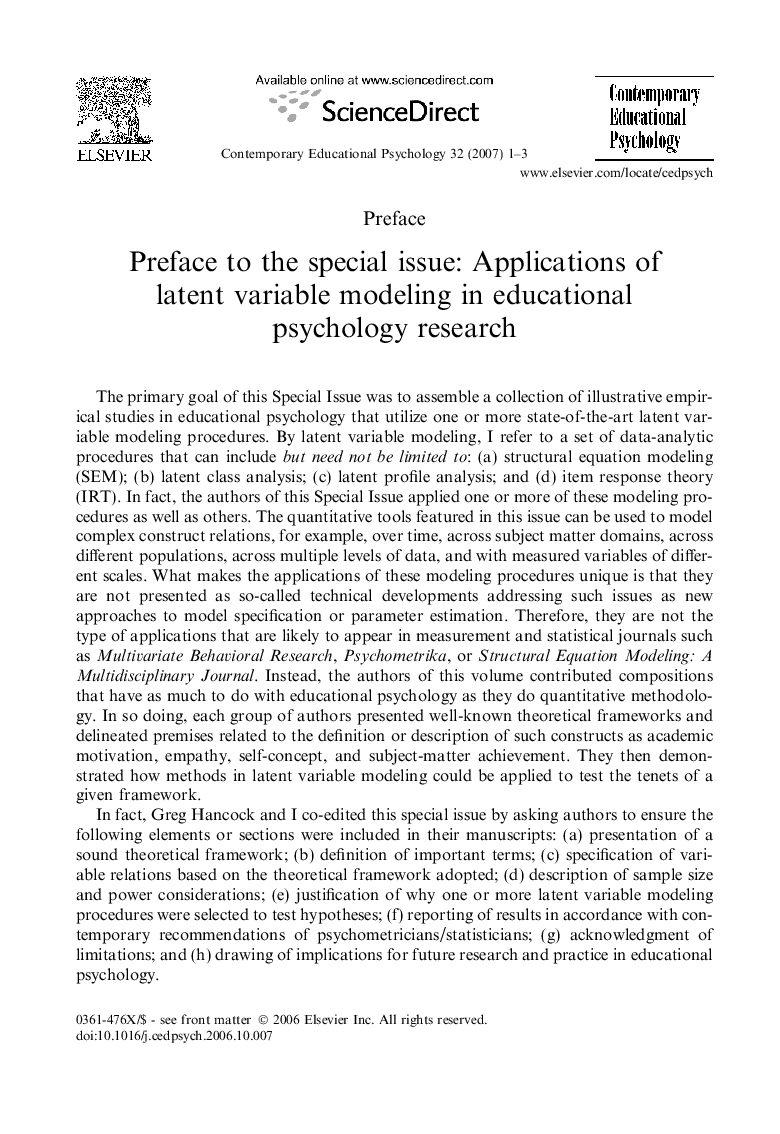| Article ID | Journal | Published Year | Pages | File Type |
|---|---|---|---|---|
| 352920 | Contemporary Educational Psychology | 2007 | 3 Pages |
Abstract
The primary goal of this Special Issue was to assemble a collection of illustrative empirical studies in educational psychology that utilize one or more state-of-the-art latent variable modeling procedures. By latent variable modeling, I refer to a set of data-analytic procedures that can include but need not be limited to: (a) structural equation modeling (SEM); (b) latent class analysis; (c) latent profile analysis; and (d) item response theory (IRT). In fact, the authors of this Special Issue applied one or more of these modeling procedures as well as others. The quantitative tools featured in this issue can be used to model complex construct relations, for example, over time, across subject matter domains, across different populations, across multiple levels of data, and with measured variables of different scales. What makes the applications of these modeling procedures unique is that they are not presented as so-called technical developments addressing such issues as new approaches to model specification or parameter estimation. Therefore, they are not the type of applications that are likely to appear in measurement and statistical journals such as Multivariate Behavioral Research, Psychometrika, or Structural Equation Modeling: A Multidisciplinary Journal. Instead, the authors of this volume contributed compositions that have as much to do with educational psychology as they do quantitative methodology. In so doing, each group of authors presented well-known theoretical frameworks and delineated premises related to the definition or description of such constructs as academic motivation, empathy, self-concept, and subject-matter achievement. They then demonstrated how methods in latent variable modeling could be applied to test the tenets of a given framework.
Keywords
Related Topics
Social Sciences and Humanities
Psychology
Applied Psychology
